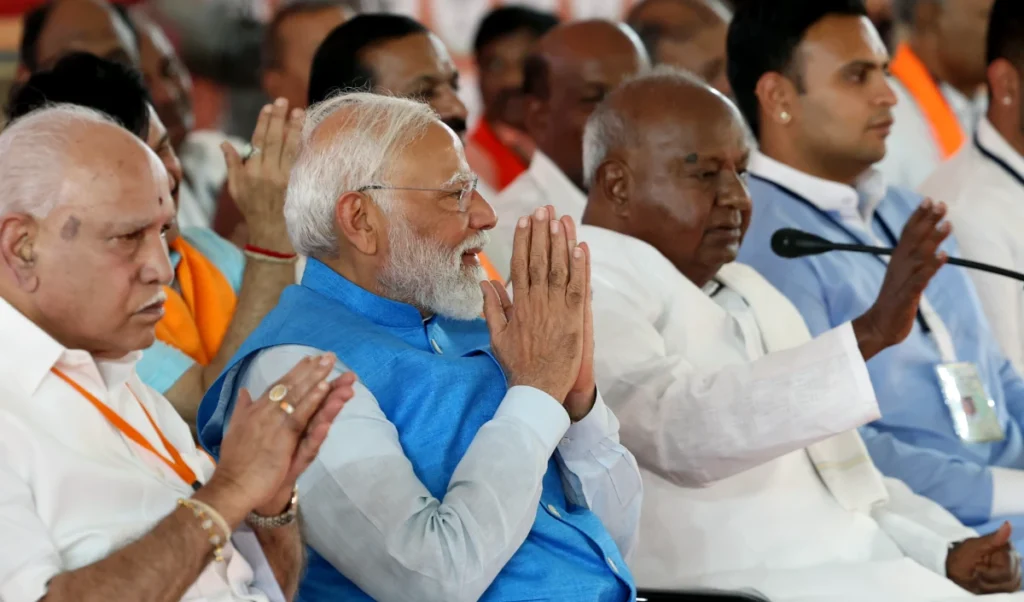Newsmatro

As political debates intensify over the inclusion of Muslims in Karnataka’s Other Backward Classes (OBC) list, historical records shed light on the origins of this reservation policy.
Contrary to recent criticisms from Prime Minister Narendra Modi, it was HD Deve Gowda’s Janata Dal government that first implemented the Muslim quota in 1995.
During a rally in Madhya Pradesh, PM Modi criticized the Congress-led Karnataka government’s decision to extend reservation to Muslims within the OBC category.
However, Karnataka Chief Minister Siddaramaiah swiftly countered these accusations, labeling them as a “blatant lie” and questioning whether Deve Gowda still stood by his initial support for Muslim quotas.
In 1995, under the leadership of HD Deve Gowda, the Karnataka government introduced a distinct classification, 2B, within the OBC quota, granting four percent reservation to Muslims.
This decision was based on recommendations from the Chinnappa Reddy Commission Report, following Supreme Court directives to cap overall reservations at 50 percent.
The reservation faced legal challenges, with the Supreme Court directing the Karnataka government to limit overall reservations to 50 percent.
Following political turmoil, Deve Gowda became Chief Minister in 1994 and implemented the previous government’s quota decision with amendments based on the Supreme Court’s interim verdict.
Despite changes in government, including coalitions and BJP-led administrations, no modifications were made to the Muslim quota classification.
In 2019, Chief Minister Basavaraj Bommai proposed abolishing the Muslim quota and including them in the Economically Weaker Sections (EWS) category.
However, this proposal was met with opposition and legal challenges, leading to a halt in its implementation by the Supreme Court.
As the debate over Muslim reservations continues, the Supreme Court’s intervention has maintained the status quo, halting the Karnataka government’s decision to scrap the OBC quota for Muslims.
This legal battle underscores the complexities surrounding reservation policies and their implications for marginalized communities in Karnataka.